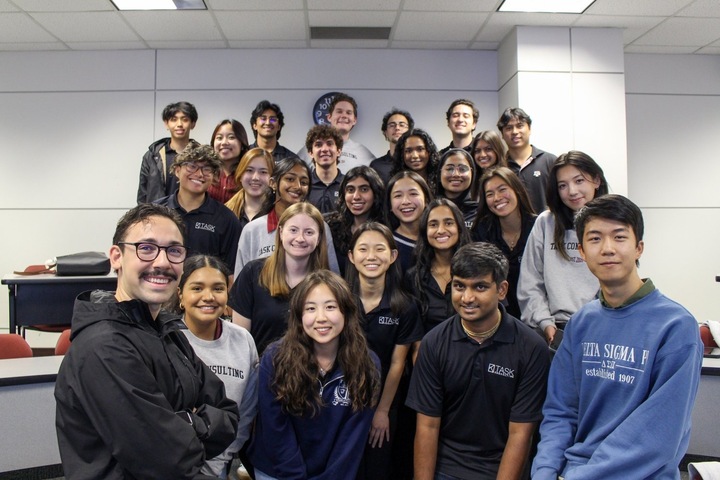As the end of the semester approaches, students are sharing challenges they have experienced a digital semester. Students now have a close estimate of their grades, but no opportunity to change how it will appear on their transcript.
Though the university has offered in-person class options this semester, the amount of time students have spent on campus has varied based on their degree program, as well as choices to limit exposure to COVID-19.
Some Aggies were fully online for the semester, like allied health senior Nitha Inthavong.
“I knew that I would be working and I didn’t really want to get exposure in so many different ways,” Inthavong said. “Especially if I was traveling back home to my family, which I did do.”
Inthavong was in College Station this fall and her choice was intended to reduce virus exposure. She said this was a challenging decision.
“I know a lot of students who have been struggling, especially students that have mental health issues that coincide with the difficulty of transitioning online,” Inthavong said. “It makes it a lot more difficult for students to finish everything and pay attention in online lectures.”
Despite grade options being available in the spring for many universities, some students felt discouraged from partaking. One student was computer science freshman Apsara Mitra.
“In my dual-credit program, we did have the option to pass and fail for all of our classes, we were just discouraged from doing it,” Mitra said. “For a lot of people it’s not like ‘I want to do it,’ I feel like in this situation they don’t have the technological means. They have to do it.”
Though Mitra had computer access while working from home, this did not resolve all barriers of online education.
“I have a twin sister, she goes to a school in California but she’s still at home. We only have one computer that works well, so for exams she obviously needed that computer,” Mitra said. “It’s kind of difficult to coordinate. I’m taking computer science classes, and she’s taking engineering classes.”
In technology-based classes especially, the sisters had difficulty ensuring that they could both complete assignments on time and participate in classes hosted via Zoom.
English freshman Ashley Courtois said online classes have taken a toll on her first semester as a full-time student.
“I’m a freshman, so I don’t have much of a baseline to compare this to,” Courtois said. “I can’t say if this has been a much more difficult experience than it would have been.”
This disconnect from campus life has affected students in the type of instruction they recieve. Courtois said. She said the negative effect was noticeable in the differences in class discussions.
“It’s more difficult to get student engagement and solidarity, and our caliber of discussions isn’t as high,” Courtois said. “I feel like professors are having to perform more of a monologue due to people turning off cameras or mics.”
The pass/fail system isn’t advantageous for students in certain types of programs, like honors, pre-med or pre-law, Courtois said. While a student may struggle, there is pressure to receive a letter grade. Courtois said pass/fail works better in certain situations.
“Certain programs require certain GPA,” Courtois said. “I don’t know how feasible it would be to have pass/fail for every class, but it should at least be a case-by-case basis.”
Inthavong and Mitra noted how the facilitation of the semester with a heavy reliance on digital platforms affected students across campus unequally.
“I think it’s [online school] in a weird way elitist,” Mitra said. “A&M is a pretty privileged school, so I think there’s people who don’t have issues, but there’s still a significant number of kids who are on scholarships, who are there because they want to be successful, but they just don’t have the technological means to be present.”
While all of the students interviewed had online classes, it was all under different circumstances. Inthavong said flexibility is especially important now.
“Nothing should be black and white. You should always have the option to stay safe or put yourself in an environment that helps you learn better,” Inthavong said. “Everyone’s going through different circumstances, and everyone’s handling COVID[-19] very differently.”
Students frustrated with lack of grading options
December 1, 2020
Photo by Photo by Meredith Seaver
Admin building at Texas A&M stands large on Friday, June 15.
0
Donate to The Battalion
$2065
$5000
Contributed
Our Goal
Your donation will support the student journalists of Texas A&M University - College Station. Your contribution will allow us to purchase equipment and cover our annual website hosting costs, in addition to paying freelance staffers for their work, travel costs for coverage and more!
More to Discover










